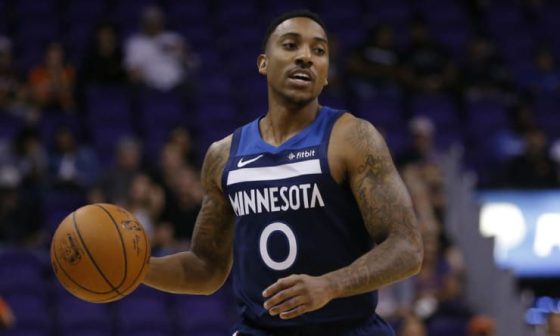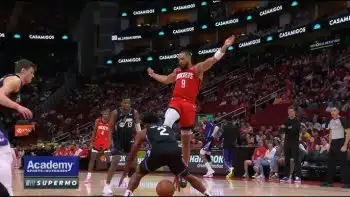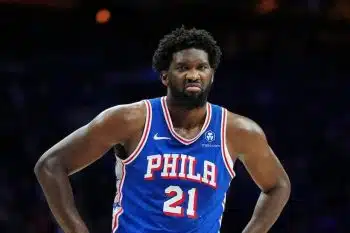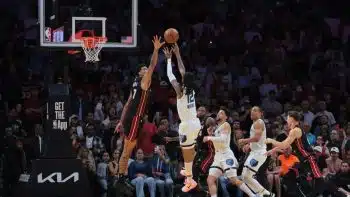NBA
NBA Daily: By Benching Himself, Teague Sparks The Timberwolves

Saying you want to help your team win is one thing. Suggesting to the head coach that he take you out of the starting lineup is another. It may be basketball’s truest form of actions speaking louder than words.
In the last eight seasons, Minnesota Timberwolves point guard Jeff Teague has come off the bench a total of five times, never more than twice in a year. He may not be seen as one of the NBA’s best point guards, but he has long been one of its most consistent and durable. In those respects, he would be one of the last players expected to volunteer for a backup’s role. But by his own doing, Teague has come off the bench twice this week, matching that eight-year high in just three days.
Then again, putting the team ahead of himself was Teague’s repeated message before the season. Coming off a year in which he missed 40 games, more than his last six years combined, Teague insisted in October he had nothing to prove in the last season of his $57 million contract.
“Sitting out wasn’t something I was used to or something I wanted to do, but I love playing the game,” he said. “Just being able to get back on the floor and show what I can do, but I don’t really want to try to prove anything.
“I just want to do what I can to help this team win.”
Those were the words to remember: “I just want to do what I can to help this team win.”
That apparently includes coming off the bench, something Teague first did on Nov. 13 in a Timberwolves victory against the San Antonio Spurs. That did not stand out, though, as Teague was coming off a four-game absence with an illness. Playing only 23 minutes as he got his legs back under him made sense.
While Teague was sidelined, Andrew Wiggins had gone off, clicking in head coach Ryan Saunders’ system with the ball in his hands more often. Given Teague’s return to the starting lineup, the question was if Wiggins would continue to have the ball in his hands. It had directly correlated with a five-game stretch in which he averaged six assists per game. Of all the changes in Wiggins’ game in this breakout season, his ball distribution stood out.
With both Wiggins and Teague in the starting lineup in the year’s first six games, Wiggins had averaged 1.7 assists per game. After Wiggins missed a few games, making Teague’s fit back into the starting lineup a natural one, that average climbed to only three assists per game in losses to the Utah Jazz and the Phoenix Suns last week.
Wiggins’ scoring remained noteworthy, breaking 20 points in each of his last 11 games, but that fall in assists represented a downtick in his general aggression. Those two losses underscored the worrisome shift.
Then came the actions, Teague telling Minnesota head coach Ryan Saunders to give rookie Jarrett Culver his starting spot and thus putting the ball back in Wiggins’ hands to start games.

“As long as I can help the team in some type of way,” Teague said. “And still get the chance to play significant minutes. But starter or not, I just want [Wiggins] and those guys to get a chance to be aggressive at the beginning of the game, let them play with that sense of urgency.”
Wins at Atlanta and San Antonio have followed, halting a stretch of four losses in five games. Wiggins’ assist numbers have not spiked, but his effectiveness has, perhaps peaking with a +26 in 36 minutes against the Spurs on Wednesday. The impact of Teague’s selflessness goes beyond Wiggins’ raw stats.
In 718 possessions this year without Culver but with Wiggins, the Timberwolves have a +1.8 point differential per 100 possessions, according to cleaningtheglass.com. With both on the court for 390 possessions, that number jumps to +12.1.
The duo works, setting up Wiggins to drive the offense while the wing-heavy defense can switch through most any opposing set. Starting games with that momentum makes sense, as Teague realized, and it sets him up to lead the second unit, a Minnesota need with Shabazz Napier held out by a right hamstring strain since Nov. 4, making a nine-minute appearance Sunday. Half of Teague’s eight assists on Nov. 25, his first night off the bench, came with the second unit, including two to forward Gorgui Dieng. Teague made a point afterward of saying he enjoys playing with Dieng and wing Josh Okogie, who has knocked down two buckets off Teague assists in this new rotation.
In Sunday’s 115-107 loss to the Memphis Grizzlies, again half of Teague’s six assists benefited the second unit, highlighted by two 3s from Keita Bates-Diop.
Against the Hawks, Saunders let Teague know he would enter the game around the six-minute mark, giving the 11-year veteran a chance to focus as his time came, much like he would when starting.
“Trying to find any way possible to get going as fast as possible, but I think it worked good for us last night,” Teague said the next day. “… It was different for me, because I have never really come off the bench so last night was like trying to figure it out. Then the second half I got a rhythm.”
Teague may still close games alongside Wiggins, he may return to the starting lineup if/when Napier gets fully healthy, he may continue to reference former teammate and three-time Sixth Man of the Year Award winner Lou Williams when discussing this new role. Whatever is needed, Teague has made it clear, only one thing matters to him. Last season was the first time he ever missed the playoffs.
“That was really awkward,” Teague said back in October. “I’ve always been in a situation where I was in a playoff situation, so not being able to play and then not being in the playoffs, it wasn’t fun at all.”
His actions clearly back up how much Teague wants to get back to the postseason.











